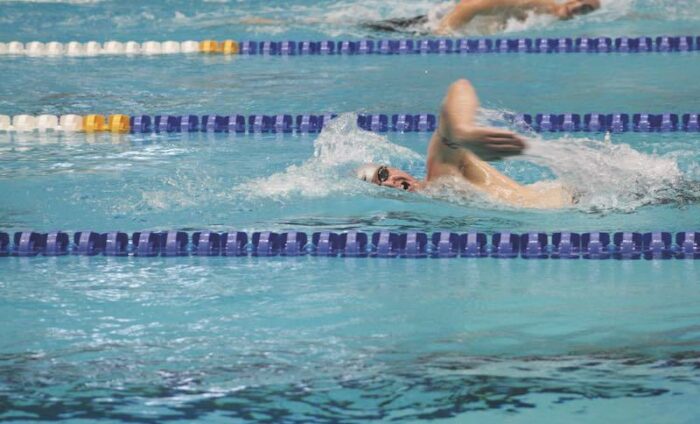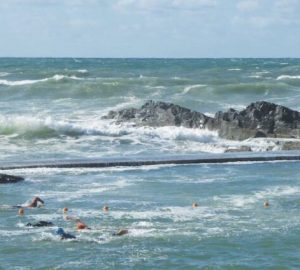
View from the water – Why you should consider joining a masters swim club
At the end of October each year, hundreds of adult swimmers gather in Sheffield for the Swim England National Masters and Senior Age Group Championships. This three-day event sees swimmers from 18 to 80-plus racing all four strokes over distances from 50m to 1500m in the pool at Ponds Forge.
Pool racing is very different to open water and results in different pressures and rewards. In a pool race, you feel very exposed. You line up to race with just a few other swimmers and you have a lane to yourself. The referees and judges watch your every move while your time is recorded to 1/100th of a second. The feedback on your performance is immediate and brutally honest. In many events, it’s all over in less than a minute or two.
Personally, racing 200m in the pool makes me more nervous than doing a 5km swim in a lake or the sea. But I have to confess, I also get a big buzz from it and every year try to include a few pool races between my outdoor swims. I know a few other regular open water swimmers feel the same way and if you haven’t yet tried it, I recommend you give it a go.
Outdoor swimming is very much about taking part and finding your own level of challenge, and there’s no reason why you shouldn’t take that approach to pool racing. Apart from the Nationals, which this year introduced qualifying times, there are no minimum standards and swimmers with a wide range of abilities take part. Completing a 50m dash in a heated pool (in a lane to yourself) might not give you that same sense of achievement as a mile battling through the waves in the ocean, but pushing your body through water as fast as it possibly can definitely gives you a high. There’s something about the build-up of nervous tension and its sudden, explosive release when you hit the water that makes you feel really good. It’s a shame therefore that masters pool racing is often seen as the preserve of ex-club and national swimmers. At pool galas there are many fewer slower swimmers than in open water, which means a lot of swimmers are missing out on a fun swimming experience.
At my local masters swimming club (Teddington) we organise a time-trial gala and encourage new members to take part. We make it as much like an official event as we can, with time keepers, judges and starting blocks. For many swimmers this is their first ever experience of pool-based competition. Whenever in life you take up swimming, testing yourself against the clock in a competitive environment is fun. It doesn’t matter what the time is or how it compares to anyone else’s. It’s just a benchmark to track your own progress.
As I see it, there’s a huge underexploited cross-over between masters swimming and open water. Dedicated pool swimmers frequently discover a new source of inspiration and love of swimming when they try swimming outside, and open water fans can use the pool to learn new skills and swim faster.
Unfortunately, there is a barrier to participation in pool events in the UK: you need to be a member of Swim England to take part, and you can only be a member through a swimming club. If Teddington Masters is a guide, then masters swim groups are becoming increasingly diverse and welcoming to swimmers of a wide range of abilities. So, if you’re not a member of a masters group, try one out. They’re a great way to improve your swimming, meet other swimmers (including open water swimmers) and open the door to new swimming experiences, such as pool-based competitions.
Simon Griffiths is the founder and publisher of Outdoor Swimmer • Email Simon at: simon@outdoorswimmer.com








